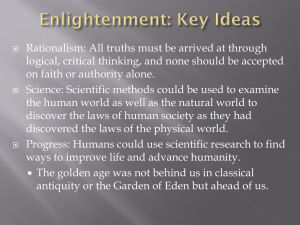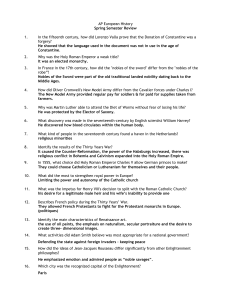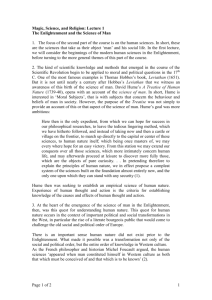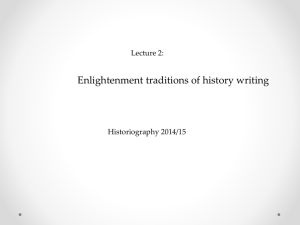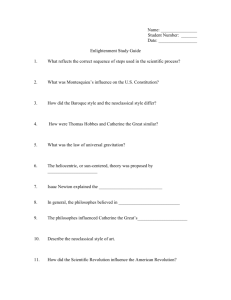1. While in England the power of kings had been... The population of a little over 30 million was divided... Background on Physiocracy - 18th Century France
advertisement
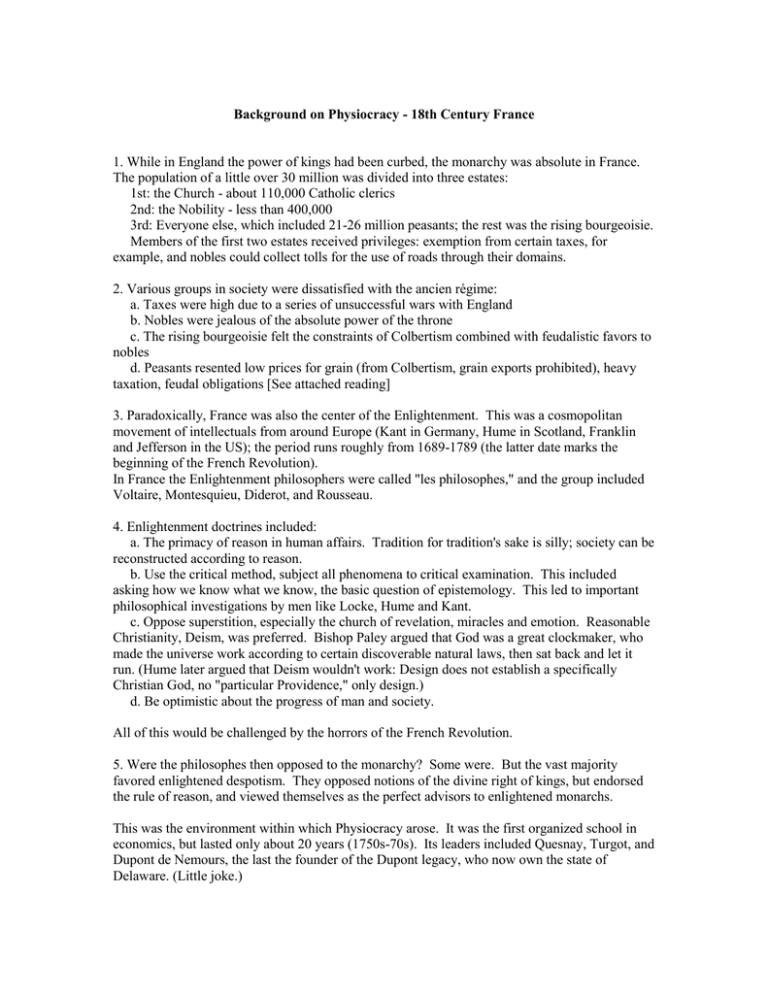
Background on Physiocracy - 18th Century France 1. While in England the power of kings had been curbed, the monarchy was absolute in France. The population of a little over 30 million was divided into three estates: 1st: the Church - about 110,000 Catholic clerics 2nd: the Nobility - less than 400,000 3rd: Everyone else, which included 21-26 million peasants; the rest was the rising bourgeoisie. Members of the first two estates received privileges: exemption from certain taxes, for example, and nobles could collect tolls for the use of roads through their domains. 2. Various groups in society were dissatisfied with the ancien régime: a. Taxes were high due to a series of unsuccessful wars with England b. Nobles were jealous of the absolute power of the throne c. The rising bourgeoisie felt the constraints of Colbertism combined with feudalistic favors to nobles d. Peasants resented low prices for grain (from Colbertism, grain exports prohibited), heavy taxation, feudal obligations [See attached reading] 3. Paradoxically, France was also the center of the Enlightenment. This was a cosmopolitan movement of intellectuals from around Europe (Kant in Germany, Hume in Scotland, Franklin and Jefferson in the US); the period runs roughly from 1689-1789 (the latter date marks the beginning of the French Revolution). In France the Enlightenment philosophers were called "les philosophes," and the group included Voltaire, Montesquieu, Diderot, and Rousseau. 4. Enlightenment doctrines included: a. The primacy of reason in human affairs. Tradition for tradition's sake is silly; society can be reconstructed according to reason. b. Use the critical method, subject all phenomena to critical examination. This included asking how we know what we know, the basic question of epistemology. This led to important philosophical investigations by men like Locke, Hume and Kant. c. Oppose superstition, especially the church of revelation, miracles and emotion. Reasonable Christianity, Deism, was preferred. Bishop Paley argued that God was a great clockmaker, who made the universe work according to certain discoverable natural laws, then sat back and let it run. (Hume later argued that Deism wouldn't work: Design does not establish a specifically Christian God, no "particular Providence," only design.) d. Be optimistic about the progress of man and society. All of this would be challenged by the horrors of the French Revolution. 5. Were the philosophes then opposed to the monarchy? Some were. But the vast majority favored enlightened despotism. They opposed notions of the divine right of kings, but endorsed the rule of reason, and viewed themselves as the perfect advisors to enlightened monarchs. This was the environment within which Physiocracy arose. It was the first organized school in economics, but lasted only about 20 years (1750s-70s). Its leaders included Quesnay, Turgot, and Dupont de Nemours, the last the founder of the Dupont legacy, who now own the state of Delaware. (Little joke.)
